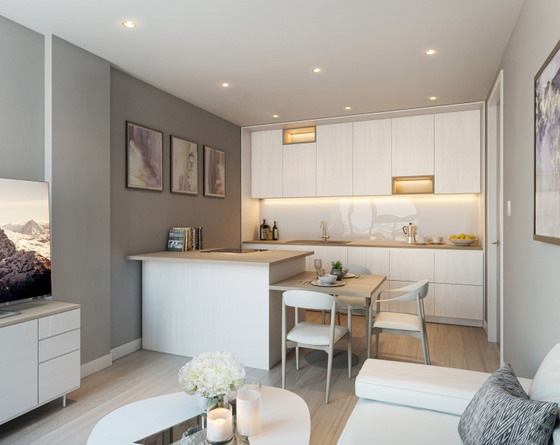Pandemic drives changes in landlord behaviour/buying patterns
- Investors increasingly seeking additional bedrooms and on-site co-working spaces
- Outdoor space to remain at a premium over the longer term
- City homes in particular being scrutinised by landlords looking for ideal amenities
Property investment company Fabrik Invest is reporting longer-term changes in landlord behaviour and requirements, as the continuing impact of the pandemic is felt across the UK’s private rented sector.
“There’s still plenty of interest from investors looking to become landlords. Indeed, the Bank of England putting banks on notice to prepare for negative interest rates in the next six months is doing much to fuel a shift of liquid assets into bricks and mortar. Many of our investors are already moving to do this. What’s interesting is the sustained shift in the types of property that they are seeking.”
Dale Anderson, Managing Director, Fabrik Invest
This shift in demand has put a spotlight on properties such as Bishopgate Gardens in Preston. Priced from £120,000 and due for completion in September this year, Bishopgate Gardens’ 130 apartments have been designed to deliver an exceptional living experience. Residents of the one, two and three-bedroom homes will have access to a shared working space (‘The Common’) and on-site coffee pod café, as well as a stylish lounge area and reception with 24/7 concierge. The show-stopping rooftop gardens on the eighth and eleventh floors, meanwhile, more than tick the oh-so-important outdoor space box.
It is the shared working space, as well as the outdoor areas, which Fabrik Invest has found that investors are increasingly focused on. Home-based working has flourished of necessity during the pandemic, but over the longer term it will continue out of choice for many.
“The increase in home working is driving interest in on-site co-working spaces like never before and it’s not stopping there. Many investors are now looking to put their cash into properties with an additional bedroom that can be used as an office. Landlords are adapting their behaviours and approach to the new normal.”
Dale Anderson, Managing Director, Fabrik Invest
It is city centre homes in particular that landlords are scrutinising through a new Covid-lens. People aren’t using city centres in the same way they used to. Many behaviours are expected to return to normal as the vaccine rollout reaches the masses. However, the fact that Covid-19 may well move from pandemic to endemic in the human population means that some changes will be for good. This means, according to the Fabrik Invest team’s experience, that landlords are hedging their bets by investing in homes with on-site facilities that make localized living easy. In Preston, Bishopgate Gardens’ seven ground floor retail units are a case in point, with residents enjoying easy access to a barber, hair salon, beauty shop and grocery store, among others.
Location-wise, it’s all eyes on the North West. Savills’ latest mainstream residential market forecast pegs the North West as leading the UK for house price growth over the next five years, projecting growth of 27.3% for the region (compared to 20.4% for the UK as a whole). This is already unfolding, looking at recent figures. Zoopla’s latest House Price Index shows that the highest house price growth since April 2017 is being led by northern cities, with Liverpool house prices climbing by 6.3% over the past year, followed by those in Manchester at 6%. But that’s not to say that landlords are looking in precisely the same locations within these cities that they were pre-pandemic, according to Fabrik Invest.
“In big cities like London, Birmingham and Manchester, we are seeing investors looking at areas further out, such as the home counties and commuter belt towns for London. Kent is a good example of this – it has the good transport connections for those who need to commute into London, as well as plentiful green space and more affordable prices than the capital. In Manchester, it is Salford Quays that is turning heads. Tenant demand is strong there and investors are racing to meet that demand.”
Dale Anderson, Managing Director, Fabrik Invest
As 2021 unfolds, all eyes will be on the UK housing market to see what happens after the stamp duty holiday ends. Ultimately, though, the country has a sustained imbalance between its supply of rental homes and the demand for those homes. With the prospect of negative interest rates also coming into play, demand from investors doesn’t look to be dropping off any time soon.
For more information, please contact Fabrik Invest on 020 8175 9891 or enquiries@fabrikinvest.com, or visit www.fabrikinvest.com

